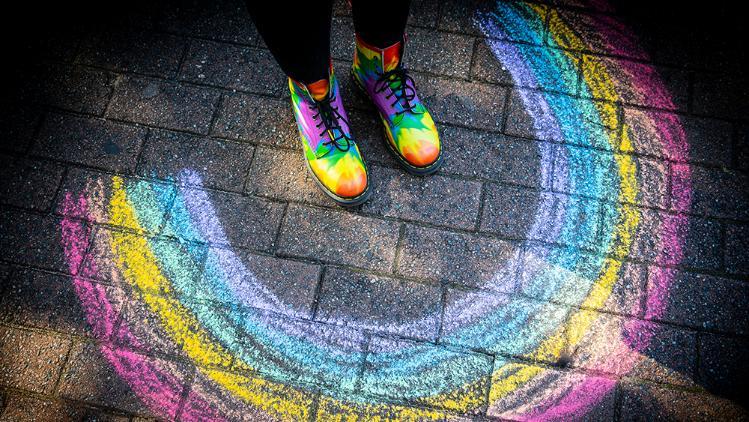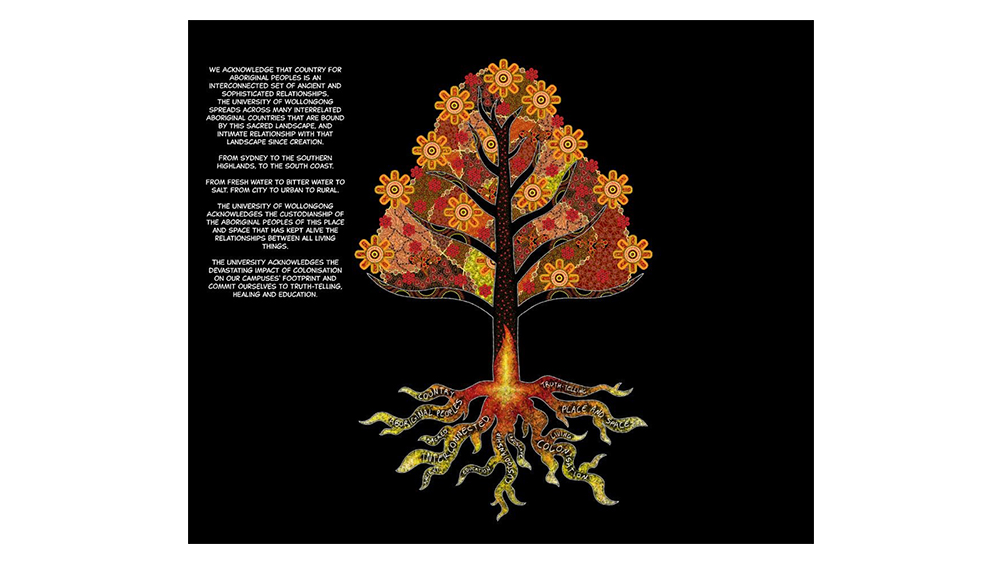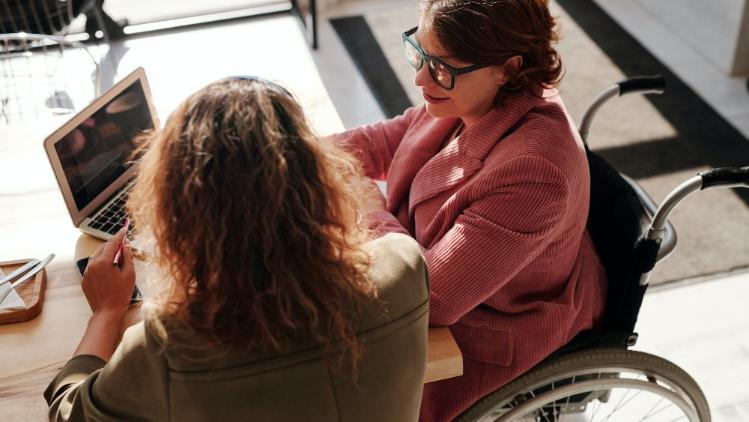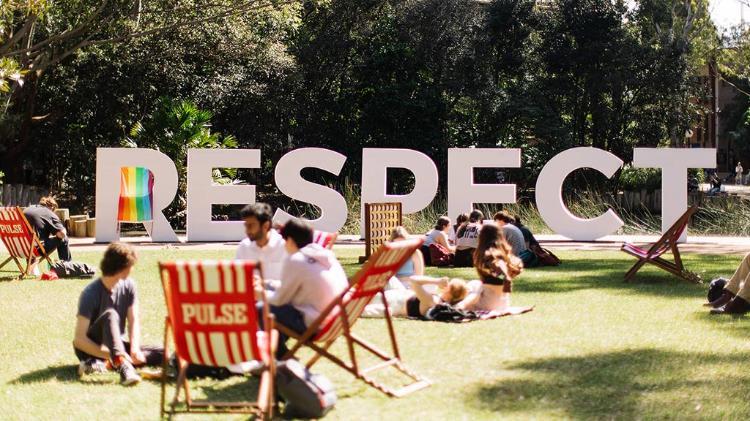Cultural and religious inclusive language practices
|
Language and practice to avoid
|
Good inclusive language practice
|
|
Black/Brown/Yellow/ Red/Purple people OR Coloured person
|
Person of colour (POC)
|
|
An African (broad generalisation)
|
Person of Kenyan descent (specific)
|
|
Foreigners
|
International people, international students
|
|
Mixed race
|
Biracial, multiracial
|
|
Third world country
|
Developing country
|
|
God-botherer
|
A person of faith
|
|
Believes in the sky-fairy/imaginary being
|
A believer (in God or other deity)
|
|
Bible-basher
|
Christian
|
|
Towelhead, raghead
|
A person wearing a hijab or turban
|
|
Religious food or God food
|
Kosher/Halal (relevant terminology) dietary requirement
|
|
Conflating a negative action with a faith e.g. Islamic terrorism
|
Keeping a faith separate from an action
|
|
Christian name
|
First name, given name, affirmed name
|
Source: Words Matter: ECU's Inclusive Language Guide
Research from the Faculty on cultural and ethnic diversity
2024
Gómez Romero, L., 2024. On the True Men and Women, and Rebel Beetles: Utopia as Revolutionary Method and Practice in the Zapatista Tales of Subcomandante Marcos. Law and Literature, 36(2), pp.305-338. DOI: 10.1080/1535685X.2023.2289773.
Haas, B., Azmi, K., Sinan, H. & Hanich, Q., 2024. Policy pathways to reduce disproportionate burdens in tuna fisheries. Fish and Fisheries. DOI: 10.1111/faf.12823.
2023
Crowley-Henry, M., Almeida, S., Bertone, S. & Gunasekara, A., 2023. The multi-level intelligent career framework: An exploration and application to skilled migrants. Career Development International, 28(5). DOI: 10.1108/CDI-04-2022-0097.
Gómez Romero, L., 2023. “A World Where Many Worlds Fit”: On the Zapatista Model of a Just Society. Law Text Culture, 27(1), pp.154-203. Available at: https://doi.org/10.14453/ltc.508.
Haas, B., 2023. Achieving SDG 14 in an equitable and just way. International Environmental Agreements: Politics, Law and Economics. DOI: 10.1007/s10784-023-09603-z.
Haas, B., Jaeckel, A., Pouponneau, A., Sacedon, R., Singh, G.G. & Cisneros-Montemayor, A.M., 2023. The use of influential power in ocean governance. Frontiers in Marine Science. DOI: 10.3389/fmars.2023.1045887.
Jaeckel, A., Harden-Davies, H., Amon, D.J., van der Grient, J., Hanich, Q., van Leeuwen, J., Niner, H. & Seto, K., 2023. Deep Seabed Mining Lacks Social Legitimacy. Npj Ocean Sustainability, 2(1), pp.1-4. DOI: 10.1038/s44183-023-00009-7.
Nepal, R., Best, R. & Taylor, M., 2023. Strategies for reducing ethnic inequality in energy outcomes: A Nepalese example. Energy Economics, 126(C).
2021
Gunasekara, A., Bertone, S., Almeida, S. & Crowley-Henry, M., 2021. Dancing to two tunes: The role of bicultural identity and strong ties in skilled migrants' value-driven protean careers. International Journal of Intercultural Relations, 81, pp.42-53.
Kollmann, T., Marsiglio, S., Suardi, S. & Tolotti, M., 2021. Social Interactions, Residential Segregation and The Dynamics of Tipping. Journal of Evolutionary Economics. DOI: 10.1007/s00191-021-00742-7.
Morris, D., Lambert, K., Vellar, L., Mastroianni, F., Krizanac, J., Lago, L. & Mullan, J., 2021. Factors associated with utilisation of health care interpreting services and the impact on length of stay and cost: A retrospective cohort analysis of audit data. Health Promotion Journal of Australia, 32(3), pp.425-432.
Sedai, A.K., Jamasb, T., Nepal, R. & Miller, R., 2021. Electrification and welfare for the marginalized: Evidence from India. Energy Economics, 102(C).
2020
Fernando, M., Reveley, J. & Learmonth, M., 2020. Identity work by a non-white immigrant business scholar: Autoethnographic vignettes of covering and accenting. Human Relations, 73(6), pp.765-788. DOI: 10.1177/0018726719831070.
Iribarne Gonzalez, M. & Gómez Romero, L., 2020. El País-de-en-medio, or, the plural stories of legalities in the U.S.-Mexican Borderlands. In: K. Silva & M. Franza, eds. Migration, Identity and Belonging: Defining Borders and Boundaries of the Homeland. Routledge.
Zhang, Y., De Zoysa, A. & Cortese, C., 2020. The directionality of uncertainty expressions and the foreign language effect: Context and accounting judgement. Meditari Accountancy Research, 28(3), pp.543-563. DOI: 10.1108/MEDAR-09-2018-0377.
2019
Almeida, S., Waxin, M. & Paradies, Y., 2019. Cultural capital of recruitment decision-makers and its influence on their perception of person-organisation fit of skilled migrants. International Migration, 57(1), pp.318-34.
Li, O., Lin, T., Liu, Y., McIlgorm, A., Voyer, M.A. & Zhang, D., 2019. Communicating more effectively with recreational fishers from Chinese speaking backgrounds. Report to the NSW Recreational Fishing Trust, Project LS012, February.
2018
Kollmann, T., Marsiglio, S. & Suardi, S., 2018. Racial segregation in the United States since the Great Depression: A dynamic segregation approach. Journal of Housing Economics, 40, pp.95-116.
2017
Almeida, S. & Fernando, M., 2017. Making the cut: occupation-specific factors influencing employers in their recruitment and selection of immigrant professionals in the information technology and accounting occupations in regional Australia. The International Journal of Human Resource Management, 28(6), pp.880-912.
2015
Almeida, S., Fernando, M., Hannif, Z. & Dharmage, S., 2015. Fitting the Mould: The role of employer perceptions in immigrant recruitment decision making. International Journal of Human Resource Management, 26(22), pp.2811-2832.
Fernando, M., Almeida, S. & Dharmage, S., 2015. Employer perceptions of migrant candidates’ suitability: The influence of decision-maker and organisational characteristics. Asia-Pacific Journal of Human Resources, 54(4), pp.445–464.
2012
Almeida, S., Fernando, M. & Sheridan, A., 2012. Revealing the screening: Organisational factors influencing the recruitment of immigrant professionals. International Journal of Human Resource Management, 23(9), p.1950.
Mahadevan, R. & Suardi, S., 2012. Regional Differences Pose Challenges for Food Security Policy: A Case Study of India. Regional Studies, 48(8), pp.1319–1336. DOI: 10.1080/00343404.2012.726709.
2011
Mahadevan, R. & Suardi, S., 2011. Impact of socio-economic factors and social affiliation on living standards: a quantile regression approach. Applied Economics Letters, 19(13), pp.1231–1236. DOI: 10.1080/13504851.2011.619478.
2007
Jones, M. & Alony, I., 2007. The cultural impact of information systems-through the eyes of Hofstede-a critical journey. Informing Science: International Journal of an Emerging Transdiscipline, 4(1), pp.407-419.




